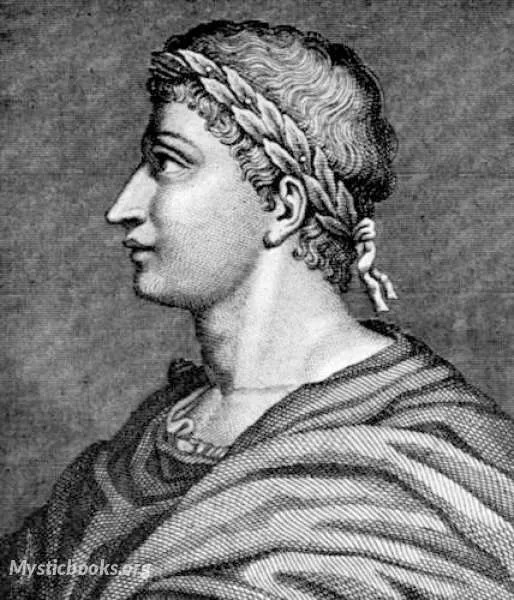
Timeline
Title
Country/Nationality
Ovid (Pūblius Ovidius Nāsō)
Pūblius Ovidius Nāsō, known in English as Ovid, was a Roman poet who lived during the reign of Augustus. He was a contemporary of the older Virgil and Horace, with whom he is often ranked as one of the three canonical poets of Latin literature. The Imperial scholar Quintilian considered him the last of the Latin love elegists. Although Ovid enjoyed enormous popularity during his lifetime, the emperor Augustus banished him to a remote province on the Black Sea, where he remained until his death.
The first major Roman poet to begin his career during the reign of Augustus, Ovid is today best known for the Metamorphoses, a 15-book continuous mythological narrative written in the meter of epic, and for works in elegiac couplets such as Ars Amatoria ("The Art of Love") and Fasti. His poetry was much imitated during Late Antiquity and the Middle Ages, and greatly influenced Western art and literature. The Metamorphoses remains one of the most important sources of classical mythology.
Ovid was born in the Paelignian town of Sulmo (modern-day Sulmona, in the province of L'Aquila, Abruzzo), in an Apennine valley east of Rome, to an important equestrian family, the gens Ovidia, on 20 March 43 BC. That was a significant year in Roman politics. Along with his brother, who excelled at oratory, Ovid was educated in rhetoric in Rome under the teachers Arellius Fuscus and Porcius Latro.
Ovid's first recitation has been dated to around 25 BC, when he was eighteen. He was part of the circle centred on the esteemed patron Marcus Valerius Messalla Corvinus, and likewise seems to have been a friend of poets in the circle of Maecenas. In Trist. 4.10.41–54, Ovid mentions friendships with Macer, Propertius, Horace, Ponticus and Bassus. (He only barely met Virgil and Tibullus, a fellow member of Messalla's circle, whose elegies he admired greatly).
He married three times and had divorced twice by the time he was thirty. He had one daughter, who would bear him grandchildren. His last wife was connected in some way to the influential gens Fabia and would help him during his exile in Tomis (now Constanța in Romania).
Ovid spent the first 25 years of his literary career primarily writing poetry in elegiac meter with erotic themes.The chronology of these early works is not secure; tentative dates, however, have been established by scholars. His earliest extant work is thought to be the Heroides, letters of mythological heroines to their absent lovers, which may have been published in 19 BC, although the date is uncertain as it depends on a notice in Am. 2.18.19–26 that seems to describe the collection as an early published work.
The authenticity of some of these poems has been challenged, but this first edition probably contained the first 14 poems of the collection. The first five-book collection of the Amores, a series of erotic poems addressed to a lover, Corinna, is thought to have been published in 16–15 BC; the surviving version, redacted to three books according to an epigram prefixed to the first book, is thought to have been published c. 8–3 BC. Between the publications of the two editions of the Amores can be dated the premiere of his tragedy Medea, which was admired in antiquity but is no longer extant.
Ovid's next poem, the Medicamina Faciei, a fragmentary work on women's beauty treatments, preceded the Ars Amatoria, the Art of Love, a parody of didactic poetry and a three-book manual about seduction and intrigue, which has been dated to AD 2 (Books 1–2 would go back to 1 BC). Ovid may identify this work in his exile poetry as the carmen, or song, which was one cause of his banishment. The Ars Amatoria was followed by the Remedia Amoris in the same year. This corpus of elegiac, erotic poetry earned Ovid a place among the chief Roman elegists Gallus, Tibullus, and Propertius, of whom he saw himself as the fourth member.
By 8 AD, Ovid had completed Metamorphoses, his most ambitious work, a hexameter epic poem in 15 books. Here he catalogued encyclopaedically transformations in Greek and Roman mythology, from the emergence of the cosmos to the apotheosis of Julius Caesar. The stories follow each other in the telling of human beings transformed to new bodies: trees, rocks, animals, flowers, constellations etc. Simultaneously, he worked on the Fasti, a six-book poem in elegiac couplets on the theme of the calendar of Roman festivals and astronomy. The composition of this poem was interrupted by Ovid's exile, and it is thought that Ovid abandoned work on the piece in Tomis. It is probably in this period that the double letters (16–21) in the Heroides were composed, although there is some contention over their authorship.
In AD 8, Ovid was banished to Tomis, on the Black Sea, by the exclusive intervention of the Emperor Augustus, without any participation of the Senate or of any Roman judge. This event shaped all his following poetry. Ovid wrote that the reason for his exile was carmen et error – "a poem and a mistake", claiming that his crime was worse than murder, more harmful than poetry.
The Emperor's grandchildren, Julia the Younger and Agrippa Postumus (the latter adopted by him), were also banished around the same time. Julia's husband, Lucius Aemilius Paullus, was put to death for a conspiracy against Augustus, a conspiracy of which Ovid potentially knew.
In exile, Ovid wrote two poetry collections, Tristia and Epistulae ex Ponto, which illustrated his sadness and desolation. Being far from Rome, he had no access to libraries, and thus might have been forced to abandon his Fasti, a poem about the Roman calendar, of which only the first six books exist – January through June.
Ovid died at Tomis in 17 or 18 AD. It is thought that the Fasti, which he spent time revising, were published posthumously.
Books by Ovid (Pūblius Ovidius Nāsō)
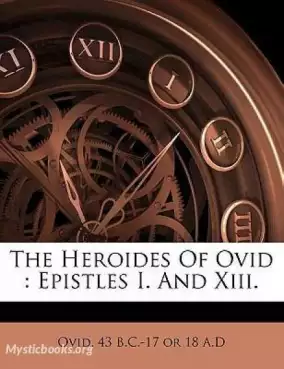
Heroides
The Heroides or Epistulae Heroidum (Letters of Heroines), is a collection of fifteen epistolary poems composed by Ovid in Latin elegiac couplets and presented as though written by a selection of aggrieved heroines of Greek and Roman mythology in addr...
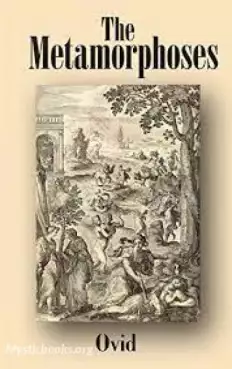
Metamorphoses
The Metamorphoses is an 8 AD Latin narrative poem by the Roman poet Ovid, considered his magnum opus. Comprising 11,995 lines, 15 books and over 250 myths, the poem chronicles the history of the world from its creation to the deification of Julius Ca...
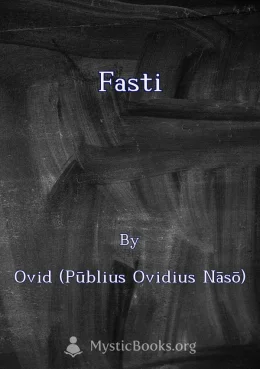
Fasti
The Fasti is a comprehensive work that explores the origins and significance of various Roman holidays, customs, and rituals. Organized according to the Roman calendar, it delves into the stories and traditions associated with each month, weaving tog...
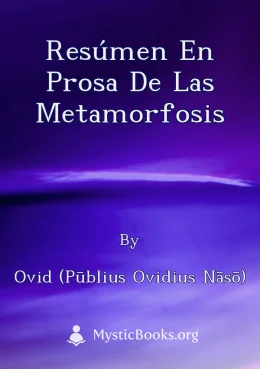
Resúmen en Prosa de las Metamorfosis
This book is a concise prose summary of Ovid's "Metamorphoses," a collection of mythological tales. It covers the key stories from the original 15-book epic, presenting a brief overview of each tale along with explanations and references to their sou...